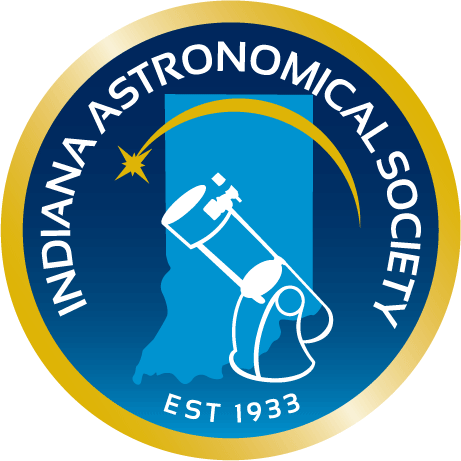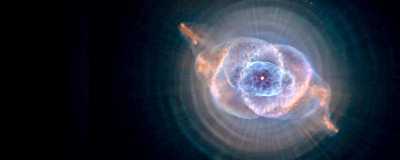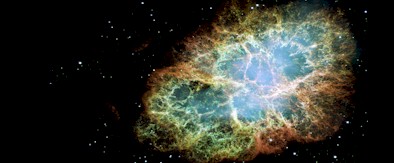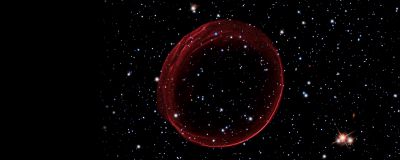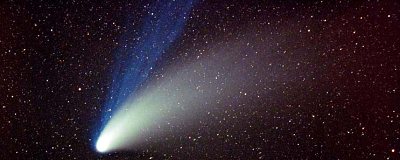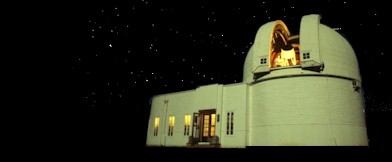
Indiana Astronomical Society
Syndicated News Feeds
NASA Breaking News - All the latest breaking news directly from NASA.
Solar System News - Get the latest breaking news on Solar System events, planetary probes and new discoveries directly from NASA/JPL.
Space.Com News - One of the top rated web sites for news and information on space and astronomy.
Space Weather Forecast - The latest Geomagnetic Activity forecast from Spaceweather Live.
Star Date - McDonald Observatory - StarDate is the public education and outreach arm of the University of Texas McDonald Observatory. Our English and Spanish radio programs air daily on more than 500 stations. And our popular bimonthly astronomy magazine is the perfect skywatching companion for amateur astronomers or anyone interested in celestial events and space exploration. We also offer astronomy resources to teachers, the media, and the public.
Universe Today - Universe Today provides summarised news via RSS, email, syndication and on the home page. The news can then be discussed on the Universe Today forum. The forum was begun on 24 July 2003. It is a place to discuss the Universe Today news and also to ask space-related questions and discuss alternate theories.
Astronomy Magazine News - Astronomy is a magazine about the science and hobby of astronomy. Based near Milwaukee in Waukesha, Wisconsin, it is produced by Kalmbach Publishing. Astronomy’s readers include those interested in astronomy, and those who want to know about sky events, observing techniques, astrophotography, and amateur astronomy in general.
Science Daily Space & Time News - Science Daily is a news website for topical science articles. It features articles on a wide variety of science topics including: astronomy, exoplanets, computer science, nanotechnology, medicine, psychology, sociology, anthropology, biology, geology, climate, space, physics, mathematics, chemistry, archeology, paleontology, and others.
Sky and Telescope Magazine News - Sky & Telescope (S&T) is a monthly American magazine covering all aspects of amateur astronomy. The articles are intended for the informed lay reader and include detailed discussions of current discoveries, frequently by participating scientists. The magazine is illustrated in full color, with both amateur and professional photography of celestial sights, as well as tables and charts of upcoming celestial events.
Chandra X-Ray Observatory - The Chandra X-ray Observatory is a satellite launched on STS-93 by NASA on July 23, 1999. It was named in honor of Indian-American physicist Subrahmanyan Chandrasekhar who is known for determining the maximum mass for white dwarfs. "Chandra" also means "moon" or "luminous"in Sanskrit.Chandra is sensitive to X-ray sources 100 times fainter than any previous X-ray telescope, due primarily to the high angular resolution of the Chandra mirrors.
Kepler Mission News - The Kepler Mission uses a NASA space observatory designed to discover Earth-like planets orbiting other stars. The spacecraft was launched on March 6, 10:49:57 p.m. EST. The mission is named in honor of German astronomer Johannes Kepler. With a planned mission lifetime of at least 3.5 years, Kepler uses a photometer developed by NASA to continuously monitor the brightness of over 145,000 main sequence stars in a fixed field of view. The data collected from these observations will be analyzed to detect periodic fluctuations that indicate the presence of extrasolar planets that are in the process of crossing the face of other stars.
International Space Station Report - The International Space Station (ISS) is an internationally developed research facility, which is being assembled in low Earth orbit. On-orbit construction of the station began in 1998 and is scheduled for completion by 2011. The station will remain in operation until at least 2015. With a greater mass than that of any previous space station, the ISS can be seen with the naked eye, and, as of 2010, is the largest artificial satellite orbiting the Earth. The ISS serves as a research laboratory that has a microgravity environment in which crews conduct experiments in biology, human biology, physics, astronomy and meteorology. The station has a unique environment for the testing of the spacecraft systems that will be required for missions to the Moon and Mars.
Astronomy Cast - Astronomy Cast takes a fact-based journey through the cosmos as it offers listeners weekly discussions on astronomical topics ranging from planets to cosmology. Hosted by Fraser Cain (Universe Today) and Dr. Pamela L. Gay (SIUE), this show brings the questions of an avid astronomy lover direct to an astronomer. Together Fraser and Pamela explore what is known and being discovered about the universe around us.
